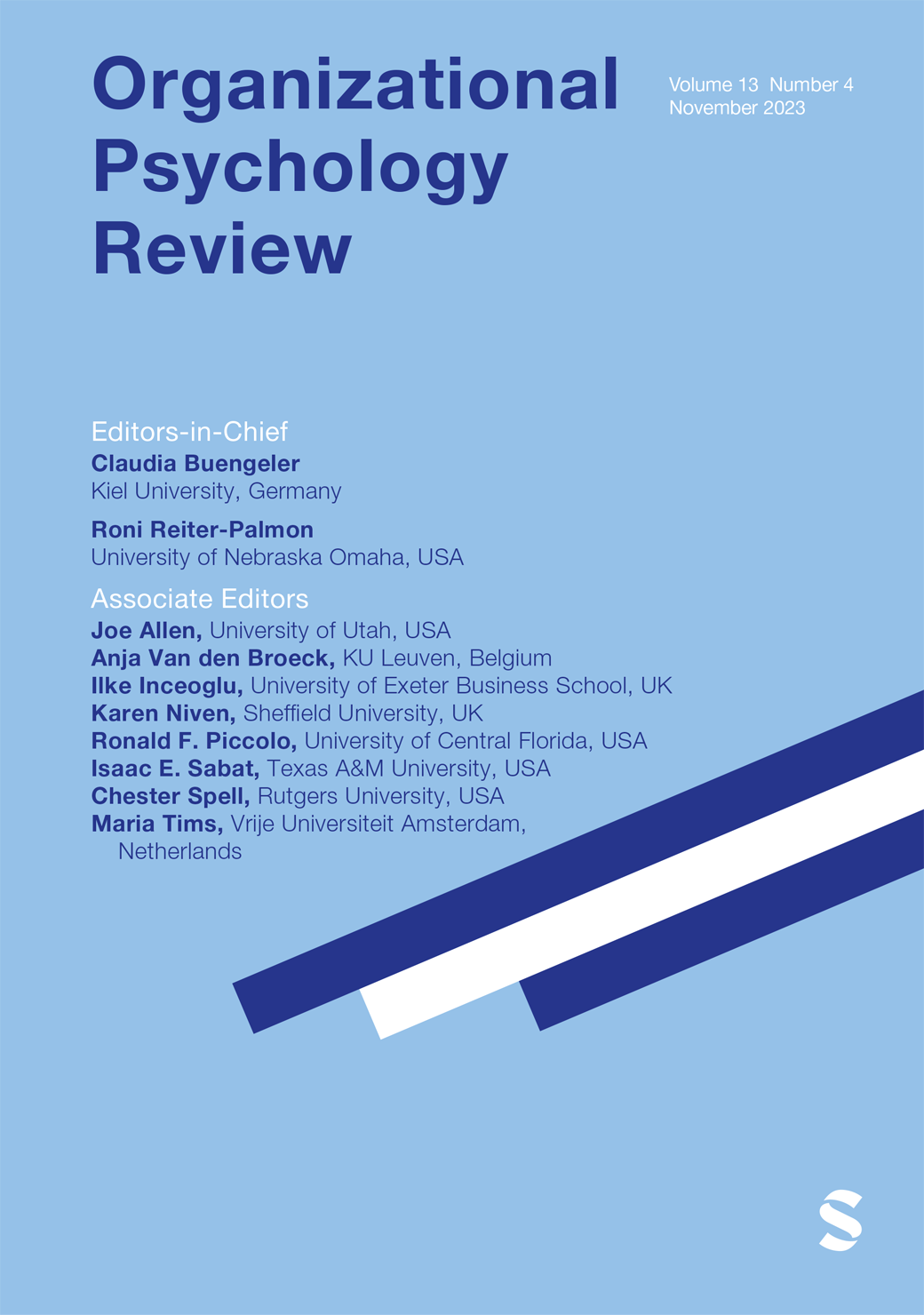Meritocracy a myth? A multilevel perspective of how social inequality accumulates through work
IF 7.1
1区 心理学
Q2 MANAGEMENT
引用次数: 33
Abstract
Work plays a crucial role in rising social inequalities, which refer to unequal opportunities and rewards for different social groups. Whereas the conventional view of workplaces as meritocracies suggests that work is a conduit for social equality, we unveil the ways in which workplaces contribute to the accumulation of social inequality. In our cumulative social inequality in workplaces (CSI-W) model, we outline how initial differences in opportunities and rewards shape performance and/or subsequent opportunities and rewards, such that those who receive more initial opportunities and rewards tend to receive even more over time. These cumulative social inequality dynamics take place via nine different mechanisms spanning four different levels (individual, dyadic, network, and organizational). The CSI-W indicates that the mechanisms interact, such that the social inequality dynamics in workplaces tend to (a) exacerbate social inequalities over time, (b) legitimate social inequalities over time, and (c) manifest themselves through everyday occurrences and behaviors.精英政治是神话?社会不平等如何通过工作积累的多层次视角
工作在日益加剧的社会不平等中发挥着至关重要的作用,社会不平等是指不同社会群体的机会和回报不平等。尽管将工作场所视为精英阶层的传统观点表明,工作是社会平等的渠道,但我们揭示了工作场所助长社会不平等积累的方式。在我们的工作场所累积社会不平等(CSI-W)模型中,我们概述了机会和奖励的初始差异如何影响绩效和/或随后的机会和奖励,因此,那些获得更多初始机会和奖励者往往会随着时间的推移获得更多。这些累积的社会不平等动态通过跨越四个不同层面(个人、二元、网络和组织)的九种不同机制发生。CSI-W表明,这些机制是相互作用的,因此工作场所的社会不平等动态往往(a)随着时间的推移加剧社会不平等,(b)随着时间推移合法的社会不公平,以及(c)通过日常事件和行为表现出来。
本文章由计算机程序翻译,如有差异,请以英文原文为准。
求助全文
约1分钟内获得全文
求助全文
来源期刊

Organizational Psychology Review
Multiple-
CiteScore
10.00
自引率
1.60%
发文量
25
期刊介绍:
Organizational Psychology Review is a quarterly, peer-reviewed scholarly journal published by SAGE in partnership with the European Association of Work and Organizational Psychology. Organizational Psychology Review’s unique aim is to publish original conceptual work and meta-analyses in the field of organizational psychology (broadly defined to include applied psychology, industrial psychology, occupational psychology, organizational behavior, personnel psychology, and work psychology).Articles accepted for publication in Organizational Psychology Review will have the potential to have a major impact on research and practice in organizational psychology. They will offer analyses worth citing, worth following up on in primary research, and worth considering as a basis for applied managerial practice. As such, these should be contributions that move beyond straight forward reviews of the existing literature by developing new theory and insights. At the same time, however, they should be well-grounded in the state of the art and the empirical knowledge base, providing a good mix of a firm empirical and theoretical basis and exciting new ideas.
 求助内容:
求助内容: 应助结果提醒方式:
应助结果提醒方式:


